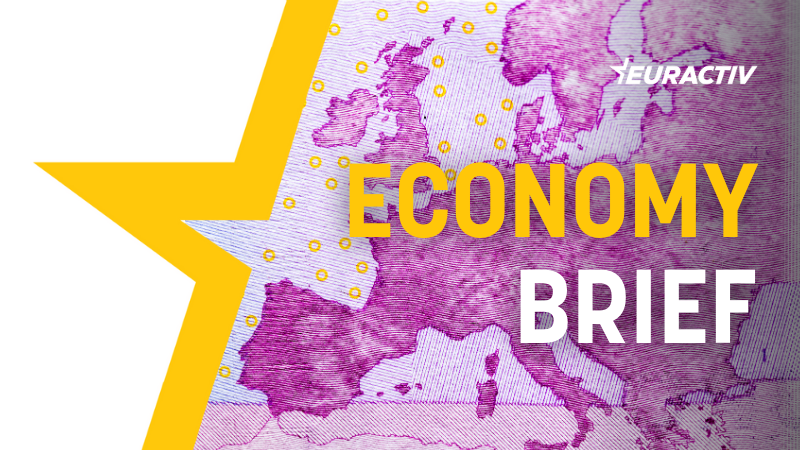German Chancellor Olaf Scholz was harshly criticised by the opposition after he downplayed his government’s declaration of emergency for the 2023 budget following the constitutional court’s ruling – as questions remain over how to fill the €60 billion hole in the climate fund.
In a far-reaching ruling on the ‘debt brake’ set in the German constitution, the court has declared it unconstitutional to use debt justified with an emergency in one year for spending in subsequent years.
The government therefore on Monday (27 November) adopted a supplementary budget for the ongoing year of 2023, securing the legality of energy aid measures taken to stabilise energy prices by declaring a state of emergency to suspend the ‘debt brake’, justified by the ongoing energy crisis.
In an address to the German parliament on Tuesday, Scholz (SPD/S&D) tried to downplay the measure, arguing that the government was “merely confirming what we had already decided at the end of [20]22, which was necessary and right then and is still just as necessary and right today”.
“We are not leaving anyone alone with the many challenges we are currently facing,” Scholz said, reiterating his football-derived slogan from 2022 of “you’ll never walk alone”. The energy aid would however be phased out by the end of this year, which was possible due to fallen energy prices, Scholz said.
Scholz did not yet say how his government plans to replace the €60 billion hole in the “Climate and Transformation Fund” as a consequence of the ruling, which affects the years 2024 to 2027.
A delay of the adoption of the 2024 budget announced last week would give the government “time to sound out available room for manoeuvre in the budget, set priorities and, of course, limit expenditure,” Scholz said.
“The major modernisation projects for our country have not become obsolete,” Scholz said, acknowledging however that the court ruling “makes it more difficult to achieve important and widely shared goals for our country.”
His speech was met with laughter by conservative opposition parties CDU/CSU (EPP), who had initiated the court proceeding by filing a suit against the repurposing of unused COVID-related debt into the climate fund.
“This decision has become necessary because your government has attempted to circumvent the debt limits of the Basic Law [German constitution] in an unprecedented, downright brazen manner,” CDU leader Friedrich Merz said, speaking after Scholz.
“It’s just embarrassing what we see and hear from you here,” Merz said, adding that “the shoes you are standing in as Chancellor of the Federal Republic of Germany are at least two sizes too big for you”.

Debt brake as ‘role model’
Merz warned against loosening the constitutional ‘debt brake’, which would have a “role model function” in other parts of the Eurozone.
“If the dams break in Germany, they won’t hold in all the other countries of the monetary union either,” he warned.
Regarding the ongoing negotiations on the reform of the EU debt rules, Merz said: “We must help you to ensure that Germany also sends a clear signal of stable public finances in the monetary union.”
Members from the liberal FDP (Renew) of Finance Minister Christian Lindner also spoke out against changes to the debt brake.
“I am aware that the debt brake has come under pressure in the political arena,” FDP parliamentary group leader Christian Dürr said, but “it is still rightly popular with people in Germany.”
In a representative survey for broadcaster ZDF last week, 61% of respondents said they were against loosening the rule, which allows the government to only take on 0.35% of GDP new debt per year, with some more spending allowed during economic slumps.
To replace the €60 billion cut off the climate fund, a majority of 57% favoured cutting expenditure, with only 23% calling for new debt and 11% speaking out in favour of tax increases.

Greens warn of international competition
The Greens, meanwhile, warned against cutting money from the climate fund, which they said would endanger Germany’s competitiveness in green industries.
“$738 billion. That’s what the US is investing to drive the American economy forward, to create new jobs through climate protection,” said Katharina Dröge, co-leader of the parliamentary group of the Greens. “That, in my view, makes one thing clear: if you don’t play along, you lose,” she added.
Addressing Merz directly, Dröge said, “You can’t just shrug your shoulders and say: I don’t care if these investments are no longer possible”.
“You’ve made it pretty clear here with your laughter that you honestly don’t care about the fate of companies that are currently worried about this future, that you don’t really care about the fate of employees in this country who need the answers,” she added.
Merz, who had proposed to stop an increase in unemployment and child benefits to fill the budget gap, would “lack seriousness and, to a certain extent, decency,” Dröge said.
Alice Weidel, head of the far-right AfD party, meanwhile, blamed the government’s course on migration and climate policy as a burden on public finances.
“You don’t have a billion-euro hole. That is ridiculous. It’s absurd in view of a record total tax revenue of one trillion euros,” Weidel said.
“Cancel the climate funds and put an end to the energy and mobility transition that is costing billions. It’s that simple,” she said.

The end of a German illusion
Germany thought it could provide the necessary investments for the green transition, all the while adhering to its strict budget rules. It turned out it could not, and this should give everyone pause for thought about the EU’s own fiscal rules.
[Edited by János Allenbach-Ammann/Nathalie Weatherald]
Read more with EURACTIV








.png)
 11 months ago
39
11 months ago
39



 English (US)
English (US)